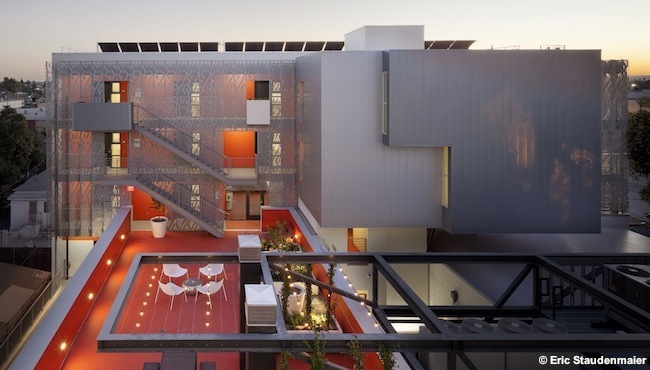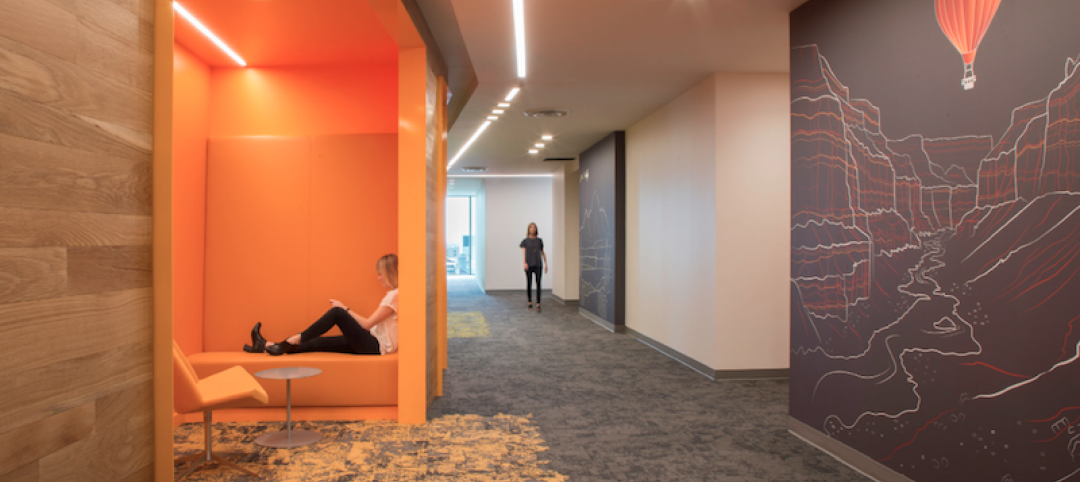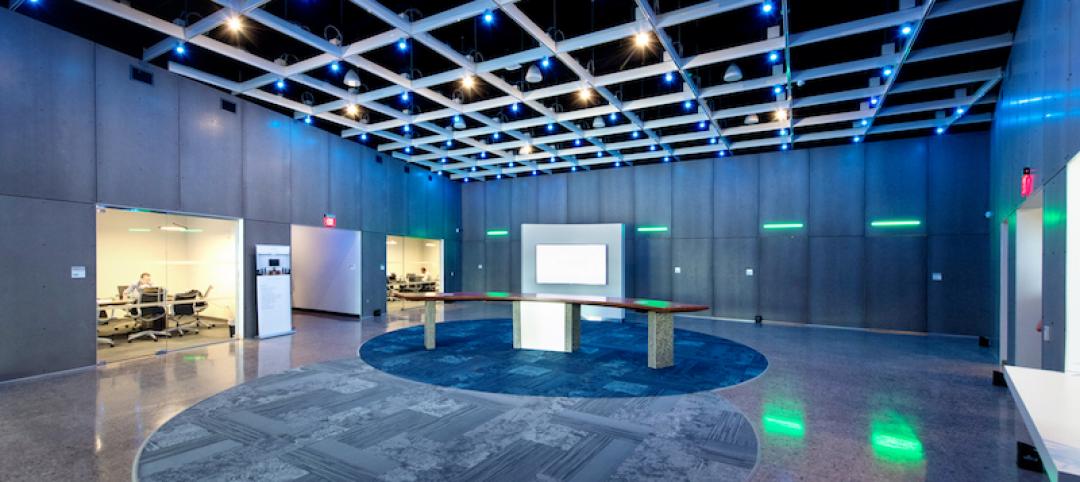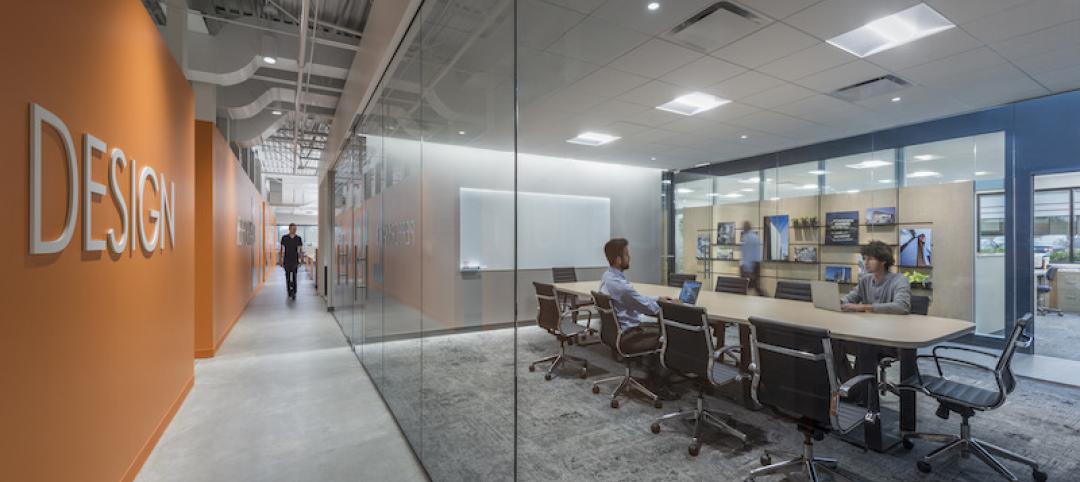The American Institute of Architects’ (AIA) Housing and Custom Residential Knowledge Community, in conjunction with the Office of the Secretary of the U.S. Department of Housing and Urban Development (HUD), recognized four recipients of the 2014 AIA/HUD Secretary Awards.
The categories of the program include Excellence in Affordable Housing Design, Creating Community Connection Award, Community-Informed Design Award and Housing Accessibility - Alan J. Rothman Award. These awards demonstrate that design matters, and the recipient projects offer examples of important developments in the housing industry.
“This year’s recipients are shining examples of how the latest innovations in design, materials and building techniques are not just for high-end housing but can also offer lower income families exceptional homes they can actually afford,” said HUD Secretary Shaun Donovan.
The jury for the 2014 AIA/HUD Secretary Awards included Nancy Ludwig, FAIA, (Chair), ICON architecture, inc.; David Barista, Building Design+Construction; Louise Braverman, FAIA, Louise Braverman Architect; Keith Fudge, U.S. Department of Housing and Urban Development; Paul Joice; U.S. Department of Housing and Urban Development and Jean Rehkeamp Larson, AIA, Rehkamp Larson Architects, Inc.
Category One: Excellence in Affordable Housing Design Award
28th Street Apartments, Los Angeles
Koning Eizenberg Architects
This project restored a 1926 YMCA building, designed by noted African American architect Paul R. Williams and listed on the National Register of Historic Places, and added a new five-story building at the rear of the existing structure.
The original building and addition house two nonprofit organizations; one offers neighborhood youth training and employment programs and the other provides 49 units of affordable housing for youth leaving foster care, the mentally ill, and the chronically homeless.
Support services are offered on-site, and residents have access to a roof garden, laundry, and lounge.
Category Two: Creating Community Connection Award
Kelly Cullen Community, San Francisco
Gelfand Partners Architects; Knapp Architects
San Francisco’s historic Central YMCA (1909), a nine-story Classical building located in the city’s Tenderloin neighborhood, has been transformed into supportive housing for the homeless and a health center for residents of supportive housing and the homeless.
The adaptive use project created 174 micro-units of permanent housing and preserved the original sky-lit second-floor lobby, auditorium, full-size gymnasium, offices, and meeting rooms.
A new radiant heating system, energy efficient lighting and ventilation, and the use of healthy materials support sustainability and resident well-being.
Category Three: Community-Informed Design Award
Kings Beach Housing Now, Kings Beach, Calif.
Domus Development; YHLA Architects
This project provides affordable workforce housing for low-income workers and families who previously lived in dilapidated, substandard housing in the Lake Tahoe Basin.
Consisting of nine buildings located on five scattered sites, Kings Beach Housing Now provides 77 LEED Silver apartments that reduce negative impacts on the environment, reuse infill land, and preserve Lake Tahoe’s beautiful open spaces. In addition, an advanced biofiltration system naturally filters 100% of on-site storm water, which prevents sediments and pollutants from negatively impacting the lake.
Category Four: Housing Accessibility | Alan J. Rothman Award
Sierra Bonita Housing, West Hollywood, Calif.
Patrick Tighe Architecture
The design challenge of this project, the first all-affordable mixed-use development in West Hollywood and the first designed and completed according to the city’s new Green Building Ordinance, was to fit the desired 42 accessible units on a 13,000-sf site and within a 50-foot height limit.
The design used minimal exterior setbacks and reversed the typical unit layout, locating the bedrooms along the interior building courtyard and the living areas on the street side, to capitalize on views and natural light.
Passive solar strategies generate power for all of the building’s common areas, and a second system of rooftop solar panels provides hot water for the entire building.
Related Stories
Sponsored | Designers | Oct 18, 2017
Universal design principles: Part 2
The CDC targets the bathroom as the most dangerous room in the house. Architects can use principles of Universal Design (UD) to reduce these hazards.
Giants 400 | Oct 17, 2017
Top 110 office architecture firms
Gensler, Jacobs, and HOK top BD+C’s ranking of the nation’s largest office sector architecture and AE firms, as reported in the 2017 Giants 300 Report.
Giants 400 | Oct 16, 2017
Data center market forecast: Clearly cloudy
Look for mission-critical construction to double in the next few years.
Resiliency | Oct 13, 2017
Resiliency takes center stage in new projects around the country
Projects like these, where resilience is central to their design and construction, are becoming more commonplace.
Architects | Oct 11, 2017
Architects to policymakers: Buildings are infrastructure, too
Left out of this ongoing national debate over infrastructure are the nation’s other public buildings: the libraries, community centers, courthouses, community college buildings, affordable housing developments, and justice facilities.
Giants 400 | Oct 11, 2017
Top 25 data center architecture firms
Jacobs, Corgan, and Gensler top BD+C’s ranking of the nation’s largest data center sector architecture and AE firms, as reported in the 2017 Giants 300 Report.
Multifamily Housing | Oct 9, 2017
6 new products for the multifamily construction market
Bamboo wall panels, an adaptable prep sink, and a two-tiered bike parking system are among the product innovations geared for multifamily buildings.
AEC Tech | Oct 6, 2017
How professional bias can sabotage industry transformation
Professional bias can take the form of change-resistant thinking that can keep transformational or innovative ambitions at bay. Tech consultant Nate Miller presents three kinds of bias that often emerge when a professional is confronted with new technology.
Giants 400 | Oct 6, 2017
Top 90 K-12 architecture firms
Stantec, DLR Group, and PBK top BD+C’s ranking of the nation’s largest K-12 sector architecture and AE firms, as reported in the 2017 Giants 300 Report.
Giants 400 | Oct 5, 2017
On wings of gold: Alternative financing schemes are propelling the high-flyin’ air terminals sector
The $4 billion renovation of New York City’s LaGuardia Airport is the first major U.S. aviation project delivered using a public-private partnership (P3) model.




































